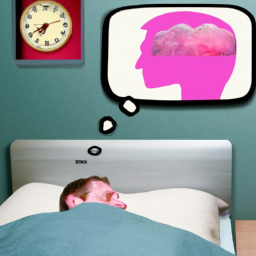When I awoke from a dream where I had ended my own life, I was overwhelmed by a feeling of dread. The memory of my suicide in the dream was so vivid and unsettling, leaving me with a lingering sense that it held a significant meaning.
Dreams about suicide can be incredibly disturbing, and they can leave us feeling confused and scared. But what do these dreams really mean?
In this article, I want to explore the possible meanings of dreams about suicide. I understand the emotional weight that these dreams can carry, and I hope to shed some light on what they could be telling us about our subconscious thoughts and feelings.
Let’s delve into the symbolic nature of dreams and see if we can make sense of this unsettling phenomenon.
Key Takeaways
- Dreams about suicide use symbolism to communicate messages from the subconscious mind.
- These dreams don’t necessarily mean that the dreamer wants to end their life, but could indicate the need for significant change or the fear of failure.
- Exploring emotions and thoughts, journaling, seeking professional help, and practicing self-care and stress management are essential in coping with these dreams.
- Building a support system can provide comfort and guidance during challenging times.
Understanding the Symbolic Nature of Dreams
Dreams are like a mysterious puzzle, with symbolic pieces that come together to create a unique story. As a dream interpreter, I understand that dreams aren’t always literal, but often metaphorical in nature.
Dreams use symbols to communicate messages from the subconscious mind, and understanding these symbols is key to interpreting the meaning behind the dream.
The symbolic nature of dreams can be challenging to decipher, but it’s essential to recognize that every symbol has multiple meanings. For instance, dreams about suicide don’t necessarily mean that the dreamer wants to end their life.
These dreams could indicate the need for a significant change in one’s life, such as ending a toxic relationship or quitting a job. Understanding the symbolism behind dreams is the first step in interpreting their possible meanings.
Possible Meanings of Dreams About Suicide
There’s a lot to unpack when it comes to interpreting the significance of dreams about suicide. These types of dreams can leave you feeling uneasy and confused, but they can also provide insight into your subconscious thoughts and feelings.
Here are three possible meanings of dreams about suicide:
-
Fear of failure: Dreams about suicide can be a manifestation of your fear of failure. Perhaps you’re feeling overwhelmed by a situation in your waking life and you’re worried that you won’t be able to handle it. This fear can manifest in your dreams as thoughts of suicide.
-
Desire for change: Dreams about suicide can also be a sign that you’re ready for change. Maybe you’re feeling stuck in your current situation and you’re yearning for something different. Thoughts of suicide can represent a desire to escape your current circumstances and start fresh.
-
Need for attention: Dreams about suicide can be a way of seeking attention from others. Perhaps you’re feeling ignored or overlooked in your waking life and you’re hoping that someone will notice your struggles and offer help.
Exploring your emotions and thoughts can help you gain a better understanding of what your dreams about suicide may be trying to tell you. It’s important to remember that dreams are often symbolic and open to interpretation, so take the time to reflect on what these dreams may mean for you.
Exploring Your Emotions and Thoughts
When exploring my emotions and thoughts related to dreams about suicide, I find it helpful to journal and reflect on my experiences. This allows me to gain a deeper understanding of my subconscious and identify any underlying issues that may need to be addressed.
Additionally, seeking professional help from a therapist or counselor can provide valuable support and guidance in processing these emotions.
Journaling and Reflection
Reflecting on your emotions through journaling can help identify triggers and provide insight into your mental health. Personally, I’ve found that writing down my thoughts and feelings in a journal has been a cathartic experience. It allows me to express myself without fear of judgement or misunderstanding from others.
Through journaling, I have been able to identify patterns in my emotions and thoughts that I may have otherwise overlooked. For example, I noticed that I tend to feel more anxious and overwhelmed when I haven’t been getting enough sleep. This realization has led me to prioritize my sleep hygiene and take steps to improve it.
In addition to identifying triggers, journaling can also provide a space for self-reflection and growth. It allows me to explore my thoughts and feelings in a safe and non-judgmental environment. Through this process, I’ve gained a deeper understanding of myself and my values. I’ve also learned to be more compassionate towards myself and others.
Overall, journaling has been a valuable tool for me in improving my mental health and wellbeing. As such, I highly recommend it to anyone who’s struggling with their emotions or mental health.
Seeking professional help is an important step in managing suicidal ideation.
Seeking Professional Help
If you’re struggling with your mental health, seeking professional help can be a crucial step towards managing suicidal ideation. Talking to a therapist or counselor can provide a safe and non-judgmental space to explore your thoughts and feelings, and develop coping strategies to manage them. There are various mental health professionals who can help, including psychologists, psychiatrists, and social workers. It’s important to find someone who you feel comfortable talking to and who has experience working with individuals who have suicidal thoughts.
To help you find the right mental health professional for you, here is a table outlining the different types of professionals and their qualifications:
| Type of Professional | Qualifications |
|---|---|
| Psychologist | Doctorate in Psychology |
| Psychiatrist | Medical Doctor with specialization in Psychiatry |
| Social Worker | Master’s in Social Work |
Remember, seeking professional help is a brave and important step towards managing your mental health. It’s okay to ask for help and there are people who want to support you. With the right help, you can develop coping strategies to manage your suicidal ideation and work towards a healthier and happier life. In the next section, we’ll discuss some of these coping strategies.
Coping Strategies
When it comes to coping with difficult emotions and thoughts, I find that self-care and stress management are essential. Taking time to prioritize my own physical and mental well-being helps me feel more equipped to handle difficult situations.
Additionally, building a support system of trusted friends, family members, or mental health professionals can provide a valuable source of comfort and guidance during challenging times.
Self-Care and Stress Management
You can take care of yourself and manage stress by taking small breaks throughout the day, like going for a walk or practicing deep breathing, even if you don’t have time. It may seem like you’re too busy, but just a few minutes of self-care can make a big difference in your mental and emotional well-being.
When I’m feeling overwhelmed, I like to step outside for some fresh air and sunshine or spend a few minutes meditating to clear my mind.
In addition to taking care of yourself, building a support system can also be helpful in managing stress and preventing suicidal thoughts. It’s important to have people in your life who you can talk to and rely on for support when you’re going through a difficult time. Whether it’s a friend, family member, counselor, or support group, finding a community that understands and supports you can make a huge difference in your mental health.
Building a Support System
Surrounding myself with a supportive community of friends, family, and professionals has been crucial in my journey towards better mental health. When I first started experiencing suicidal thoughts, I felt incredibly alone and isolated.
But by reaching out to those around me and seeking help, I was able to build a network of people who I could rely on during difficult times. Having a support system has provided me with a sense of belonging and comfort that I never knew I needed.
Whether it’s talking to a therapist, confiding in a close friend, or spending time with family, having people who care about me has made all the difference. I no longer feel like I’m carrying the weight of the world on my shoulders, and I know that there are people who will be there for me, no matter what.
Frequently Asked Questions
Can dreams about suicide predict actual suicidal thoughts or actions?
Dreams about suicide do not necessarily predict actual suicidal thoughts or actions. However, they can be a manifestation of underlying mental health issues that require attention and care. It’s important to seek help if experiencing distressing dreams.
Why do some people have recurring dreams about suicide?
I often have recurring dreams about suicide, and it can be unsettling. It’s possible that these dreams are a manifestation of my subconscious fears or anxieties, and seeking therapy might help me address them.
Do different methods of suicide in dreams have different meanings?
I believe different methods of suicide in dreams may have different meanings. For example, jumping may symbolize a desire to escape a situation, while overdose could represent a need for control. However, dream interpretation is subjective and should be approached with caution.
Can the interpretation of dreams about suicide change over time?
Over time, my interpretation of dreams about suicide has changed. At first, I thought they were just random and meaningless. But as I grew older and faced my own struggles, I realized they represented my fear of losing control and giving up.
Is there a connection between dreaming about suicide and experiencing depression or anxiety in waking life?
Dreams about suicide may indicate underlying depression or anxiety. As someone who has experienced these emotions, I know how important it is to seek help and support. Don’t hesitate to reach out for help if you’re struggling.
Conclusion
Personally, I believe that dreams are a reflection of our subconscious mind. They can reveal hidden fears, desires, and emotions that we may not be aware of during our waking hours. Dreams about suicide can be particularly disturbing, but they can also provide valuable insights into our mental and emotional state.
While there’s no one-size-fits-all interpretation for dreams about suicide, it’s important to explore your thoughts and feelings and seek support if needed. Coping strategies such as journaling, therapy, and self-care can help process the emotions brought up by these dreams.
Remember, dreams are a natural and normal part of the human experience, and by understanding and exploring them, we can gain a deeper understanding of ourselves.









